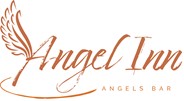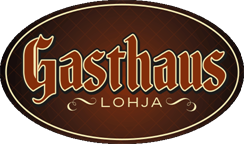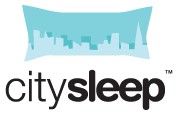Each customer has different motives on why they buy, their experience expectations, what their needs are and a level of willingness to pay at a certain price point for a great experience.
Market segmentation
To be able to target and market to a range of customers that behave differently with an offer that matches their needs and budget you’ll need to apply market segmentation.
Market segmentation identifies the purpose of the trip for example if a guest is on business, meetings or leisure.
The price point itself does not necessarily dictate the market segmentation or purpose of a trip as today's ways of booking makes it difficult to specifically identify the purpose of travel.
Identifying what the market segmentation is for your property will be critical if you are going to get your pricing policy right.
Some examples of how to define the type of customer you have is:
- Leisure guests can be individuals or retail customers that book direct or use an online travel agent (OTA) or may be a part of a tour group that has a block booking
- Business guests are individuals or contracted companies that have negotiated rates available only to corporate employees or customers that book through a particular travel agency or via the GDS
- Meeting or conference customers are delegates that may attend a conference or meeting at your property, some may also stay overnight
- Food & Beverage customers are those who may pop in for a meal or drink as a passer-by or be a guest or delegate at the hotel
By properly segmenting how you target and approach certain customer groups, as a hotel operator you can be more effective with your pricing strategy, and adopt a different approach for each customer segment.
There are a number of factors that need to be taken into account when setting your room rates such as; the level of customer demand, seasonality, business cycle (boom and slump), channel shift, the competitor environment, your property’s product positioning, and the costs of doing business.
What strategy best complements the business mix your hotel receives?
- If for example you manage a spa resort you should have a different approach to pricing compared to an airport hotel where purchase behaviour is very different. The length of stay, the advance booking period and the amenities demanded will vary, and so to the rate at which a room is sold for.
- It is also important to be able to assess and benchmark your property against your competitors’ pricing levels, room types and different amenities. Using historical data can give a snap shot of trends, and provide a “feel” for market conditions, but there also should be a forecast based on the current environment.
- When looking at recent history, pay close attention to anomalies that might affect pricing, such as economic conditions, weather, public holidays —anything that could cause data to be different year over year.
- Develop a clear value proposition that equates to the values of your hotel experience and the services that you provide guests.
- Don’t be too aggressive with your price promotions, as this could leave a doubt in a potential customers mind over the quality of your property. And having to raise rates when conditions improve may be more difficult to do than you thought, as customers have an expectation of the price point they are prepared to pay.
- Direct bookings via your own website will lift your bottom line performance, increase margins and reduce operating costs.
- Consumers in their “deal mentality” intrinsically feel that they want to have a direct relationship to get access to the best possible deal. A hotel website is the ideal platform for your property to be able to do this and directly engage with a prospective guest.
Choosing a price positioning strategy
Choosing a clear price positioning strategy for your base rate will strengthen your value perception and help you lay out a plan to be followed through-out the year.
There are several strategies you can follow;
Penetration Pricing Strategy - The local market accepts and understands your price positioning: your property may be among the cheapest in town which is ok if that positioning does not drive the overall market rates down.
Equal Pricing Strategy - The hotel sells at comparable rates with the competitive set, offering the same rooms types and added value amenities at similar prices.
Surrounding Pricing Strategy - The first room type you make available will be set at around the lowest rates in the market. Your superior room type will be sold at a rate close to the first available rates of your competitors. The key to success is to offer added value benefits bundled with your more expensive rooms so that they appear great value for the price and amenities.
Skimming Pricing Strategy - The skim strategy is to position your hotel among the most expensive, as the price leader in the market with distinct added value benefits that enable you to leverage a higher price.
To help increase revenue for your property once you receive a guest, we have put together some tips to follow:
Up-sell
Once a guest checks-in, see if they are willing to spend a little more by proposing some extra amenities or last-minute offers such as a dining package or ask if the guest would like to upgrade to a better room for a slightly more.
Giveaways
Whatever the product may be, offer your guests something to remember their time at your property and potentially add a new revenue stream by making some of your products available for purchase at the front desk.
A happy customer is a loyal customer
Satisfied customers are the best for “word of mouth” marketing and should be encouraged to refer their friends and family to stay at your property. Offer a promotion code to be redeemed at the time of booking on your website for a special deal or incentives.
From business to pleasure
Some guests are quite flexible with their itinerary and are able to stay an extra night or two after a mid-week stay. So, consider offering a discount off an additional night, when paying the standard rate for the first few nights
Happybooking is first and foremost a property management system. That means they help you with the boring admin and automate tasks giving you more time to focus on keeping your guests happy. On average customers can get back up to 10 hours per week – think what you could do with that extra time!
Happybooking have always focused on creating a user-friendly booking system to help property owners improve their revenue performance, and generate more income and reduce costs by enabling guests to book directly rather than go through a third party.
Our guest blogger is John Kennedy. John is a hospitality consultant, dedicated to helping increase profits through marketing, revenue management and efficient operations. www.kennedyandersson.com
Image source: www.pixabay.com



